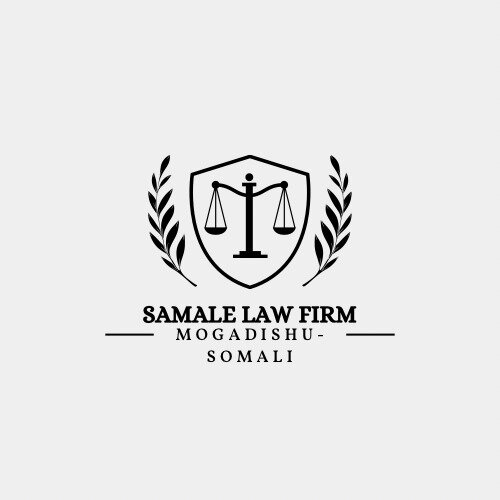About Natural Resources Law in Mogadishu, Somalia
Natural Resources law in Mogadishu, Somalia, encompasses the use and management of the country’s natural assets, including minerals, water, fish, forestry, and land. As Somalia is rebuilding its legal and regulatory frameworks post-conflict, the natural resources sector presents both opportunities and challenges. The government has been working to establish clear policies and systems for managing the extraction and use of these resources, taking into account both economic potential and environmental protection.
Why You May Need a Lawyer
Individuals or businesses involved in natural resources exploitation in Mogadishu may require legal advice in several situations. These include negotiating contracts for resource extraction, ensuring compliance with environmental regulations, resolving disputes over resource rights, understanding local and international requirements for resource management, and protecting investments. Legal assistance is crucial to navigate the complexities of the legal system and secure the proper permits and licenses.
Local Laws Overview
The natural resources sector in Mogadishu is governed by a mix of federal and regional laws. Some of the key aspects include:
- Permitting and Licensing: All activities involving the extraction of natural resources require government permits and licenses, which are subject to stringent conditions.
- Environmental Protection: Somalia's laws emphasize sustainable resource management and protection of the environment. This is to ensure that resource exploitation does not degrade the natural habitat.
- Land Ownership and Use: The land ownership system can be complex due to customary, religious, and civil law influences, which makes legal clarity essential.
- Revenue Sharing: Legal frameworks outline how revenues from natural resources are shared between the federal and regional governments, local communities, and investors.
- Dispute Resolution: There are specific mechanisms predefined for resolving disputes related to natural resource claims and usage.
Frequently Asked Questions
What are the main natural resources available in Mogadishu?
Somalia's primary resources include fish, minerals, oil and gas reserves, and arable land. Mogadishu, being a coastal city, has significant access to marine resources.
How can I get a permit to extract natural resources in Mogadishu?
You need to apply with the appropriate government authority, such as the Ministry of Petroleum and Mineral Resources, which will assess your project’s environmental impact and feasibility.
Are there environmental regulations I need to comply with?
Yes, there are strict regulations aimed at minimizing environmental damage. These include requirements for environmental impact assessments (EIAs) and rehabilitation plans.
Who resolves legal disputes in the natural resources sector?
The Ministry of Justice and Federal Courts, alongside regional customary systems, play a role in resolving disputes. Some cases may involve international arbitration.
How is land ownership determined for resource extraction projects?
Land ownership can be complex due to overlapping customary, religious, and statutory laws, requiring careful legal examination and often government approval.
Is foreign investment allowed in the natural resources sector?
Yes, foreign investment is encouraged but subject to local laws and regulations. Investors must ensure compliance with all legal requirements for operating in Somalia.
What are the key challenges in the natural resources sector?
Challenges include regulatory uncertainty, security concerns, infrastructure deficits, and occasional disputes over resource rights and community relations.
What legal protections are in place for local communities?
Local communities are given a stake in resources projects through benefit-sharing arrangements and environmental protections enshrined in laws and agreements.
How do I ensure compliance with Somali laws in the natural resources sector?
Hiring a local attorney or consultancy specializing in natural resources is advisable for navigating the complex regulatory environment effectively.
What role do international partnerships play in resource extraction?
International partnerships provide technical expertise, investment capital, and advanced technologies essential for efficient resource extraction and management.
Additional Resources
For additional information and assistance, consider reaching out to the following resources:
- Ministry of Petroleum and Mineral Resources
- Environmental Protection Agency of Somalia
- Local Chambers of Commerce and Industry
- Somali Law Society
- International organizations focused on development and environmental management such as the United Nations Development Programme (UNDP)
Next Steps
If you require legal assistance in the natural resources sector, you should consider contacting a lawyer specialized in natural resources and environmental law in Mogadishu. Look for law firms or advisors with experience in the sector who can provide tailored legal support. It's also advisable to connect with industry experts and relevant governmental departments to stay informed about any legal updates or new regulations.
Lawzana helps you find the best lawyers and law firms in Mogadishu through a curated and pre-screened list of qualified legal professionals. Our platform offers rankings and detailed profiles of attorneys and law firms, allowing you to compare based on practice areas, including Natural Resources, experience, and client feedback.
Each profile includes a description of the firm's areas of practice, client reviews, team members and partners, year of establishment, spoken languages, office locations, contact information, social media presence, and any published articles or resources. Most firms on our platform speak English and are experienced in both local and international legal matters.
Get a quote from top-rated law firms in Mogadishu, Somalia — quickly, securely, and without unnecessary hassle.
Disclaimer:
The information provided on this page is for general informational purposes only and does not constitute legal advice. While we strive to ensure the accuracy and relevance of the content, legal information may change over time, and interpretations of the law can vary. You should always consult with a qualified legal professional for advice specific to your situation.
We disclaim all liability for actions taken or not taken based on the content of this page. If you believe any information is incorrect or outdated, please contact us, and we will review and update it where appropriate.










